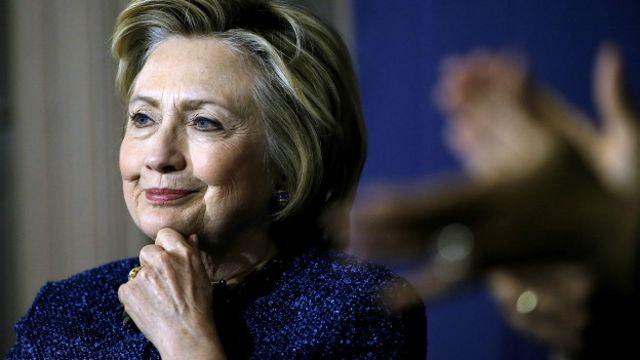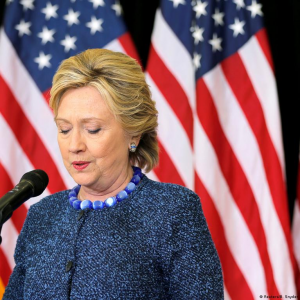Hillary Clinton returns influence
Thursday US Secretary of State Hillary Clinton travels to India and Thailand.
This is her first international trip since her injury last month.
The day before, Clinton delivered a keynote speech in Washington on foreign policy issues, which experts called an attempt by the secretary of state to regain the influence she had recently lost in the White House.
In her speech, Hillary Clinton spoke about the changed approach of the United States to the prospects for cooperation with different countries and gave examples of the successes already achieved by the administration in this area.
Analysts, however, said that the content of the speech was not so much important as the very fact of its delivery. The past month has been a very busy one for the presidential administration in terms of foreign policy, but Clinton was unable to take part in travel and negotiations due to a fractured elbow.
The absence of the secretary of state from key talks and her recent open criticism of the White House over bureaucracy and red tape in high-profile appointments has sparked speculation about Clinton’s rapidly declining influence in the presidential administration.

Status quo
Analysts believe that the real role of Hillary Clinton in the formation of political strategy is extremely insignificant.
“In many countries, she is considered a symbolic figure representing the United States, but it is still unclear whether Clinton really has a deep influence on foreign policy issues,” said Reginald Dale, an analyst at the Center for Regional and Strategic Studies.
It has been repeatedly suggested that President Obama deliberately divided spheres of influence in matters of international politics so that Clinton’s role would be purely nominal. Vice President Joe Biden, National Security Adviser James Jones, advisers Richard Holbrook and George Mitchell, according to experts, made it almost impossible for Hillary Clinton to have any political independence in matters of diplomacy.
Hillary Clinton’s speech in Washington on Wednesday was seen as an attempt to restore the status quo on the eve of the Secretary of State’s visit to India and Thailand.
“Smart” power
Before the speech, the State Department’s director of political planning, Anna Maria Slaughter, said the secretary of state “won’t be releasing big doctrine” and would focus on the presidential administration’s strategic vision.
Quite expectedly, in the speech of the Secretary of State there were words about pragmatism in the foreign policy pursued by the administration of Barack Obama.
“We have begun to develop a more flexible and pragmatic position with our partners,” Clinton said. “This does not mean that we agree on all points. However, the fact that we firmly adhere to our principles does not mean that we should not engage in dialogue, where this dialogue is acceptable to us. We will not issue ultimatums to our partners or insist that they must be either with us or against us. In today’s world, this is simply not acceptable.”
Hillary Clinton noted that such a policy has already produced tangible results
And cited North Korea as an example. According to the Secretary of State, two unanimously adopted UN Security Council resolutions and cooperation on the North Korean issue with China, Russia and India should eventually lead to the complete nuclear disarmament of the Korean Peninsula.
Analysts noted that Clinton mostly operated in general terms in her address. She spoke about the need to achieve peace in the Middle East, about democratic values and the importance of a collective approach to solving international problems.

Clinton noted the importance of so-called “smart” power
Meaning a move away from the policy of putting pressure on those on the other side of the negotiating table. To illustrate this new approach, the US Secretary of State has chosen Iran.
“Neither I nor the President of the United States are under the illusion that direct dialogue with the Islamic Republic of Iran will guarantee success, especially given the turn that events in the country have taken since the presidential election. However, we also understand what we must offer Iran and its leaders the opportunity to choose whether to become part of the international community, one of its full members, bearing full responsibility for their actions, or continue along the path of isolation,” Clinton said.
Political scientists called Hillary Clinton’s statements a repetition of the past. All this in the US has already been heard from Barack Obama.
Now, assumptions are being made about whether the Secretary of State, during his Asia-Pacific tour, will be able to surprise and please with the novelty of his approach and the very “smart power” that, according to Hillary Clinton, will be the hallmark of the new administration.
